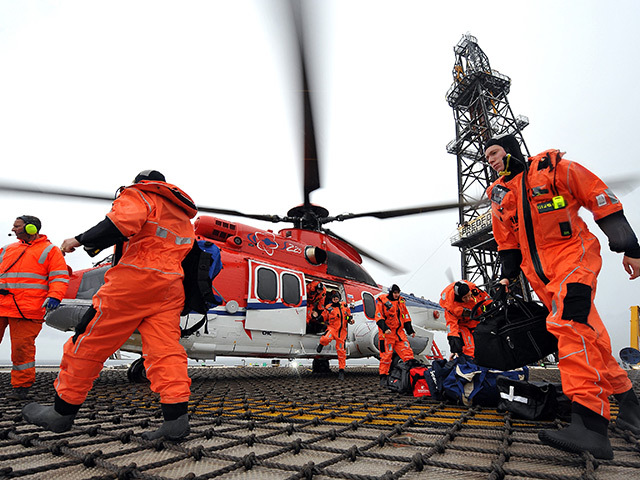
A ground-breaking study to ensure North Sea workers could escape from helicopter windows has been recognised with a prestigious award.
Robert Gordon University (RGU), along with Step Change in Safety, carried out the research in 2015, measuring the shoulder-width of the 75,000-strong offshore workforce.
It checked which workers were designated as XBR or “extra-broad” to ensure they were sitting next to a window large enough to escape through.
Through a “train the trainers” teaching approach, over 1,000 people were brought on board to gather measurements and approximately three per cent of the workforce were found to be of XBR status.
The team, headed up by Arthur Stewart from RGU’s School of Health Sciences, has received the William Floyd Award from the Chartered Institute of Ergonomics and Human Factors, for outstanding and innovative contributions to the field.
Mr Stewart said: “I think this award goes some way to prove the strength of interdisciplinary work across different sectors and the important strides we can make in terms of improving the safety of our vital workforce as they travel to and from offshore installations.”
Emily Taylor, a senior business analyst from Step Change in Safety, worked in collaboration with RGU, acting as a liaison with industry groups such as helicopter operators and the Civil Aviation Authority.
The work was also completed with the help of safety firm Survitec.
Ms Taylor said: “At Step Change in Safety, collaborating with organisations and the wider oil and gas industry is what we do daily in order to improve safety and effect change. Sticking to our ethos we came together with each organisation to deliver this important project.
“Collaboratively, we identified a specific issue, created a simple more sustainable solution which was easy to roll out, with minimal disruption to the user and the sector. We wanted this to work for the workforce.”
Recommended for you


